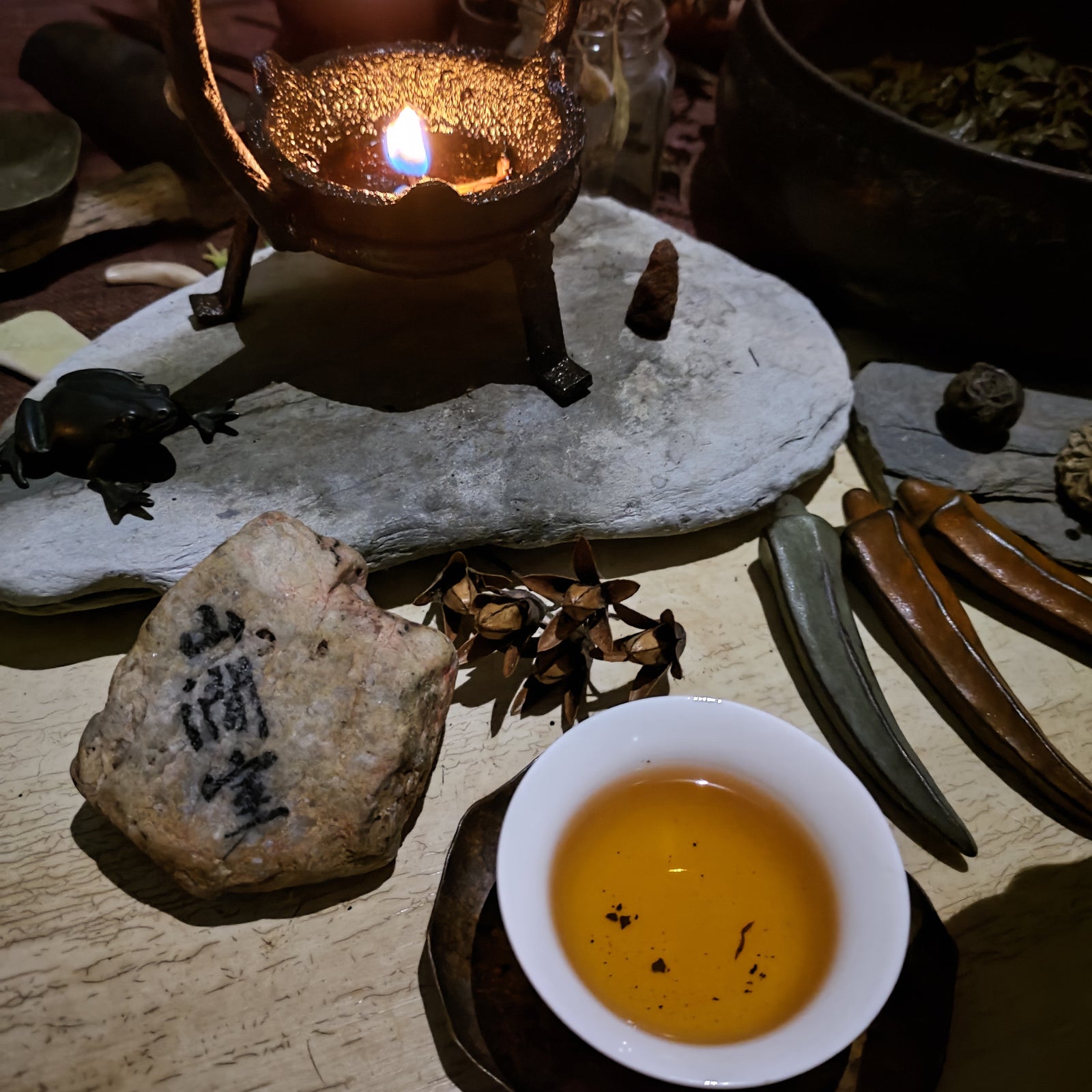Your Cart is Empty
Free Delivery for Over $300 in HK

Thanks to an introduction from a tea enthusiast in Hong Kong, I've been wanting to visit "Mountain Stream Studio" for two years... On this day, with a fine drizzle falling, we arrived at a small cabin hidden in the secluded corners of Yangmingshan, even taking a wrong turn on the way. The outside was cold and dreary, but upon entering the cabin, the warmth from the charcoal stove enveloped us.
Inhabiting "Mountain Stream Studio" is a young man named Yizhuan, who originally studied architecture. Instead of becoming an architect, he chose a life akin to a self-cultivator; he brews tea, roasts tea, engages in ironwork craftsmanship, and even plays the flute and the ancient guqin. "There's not much to do in the mountains," he humbly states. Visiting here as a guest feels like stepping into the deep mountains, evoking a sense of "a day in the mountains is a thousand years in the world."

Coming here in winter is particularly fitting. The space, illuminated by dim lights, exudes a warm coffee-colored tone. His teas are all charcoal-roasted, leaving a comforting warmth after each sip. Roasting tea is an art, and he is currently learning from a master. "One has to learn to coexist peacefully with fire, find a balance," he says. The mastery of the fire's intensity is crucial, just as our bodies must find a harmony with the fire. He explains that even for heavily roasted teas, there should be a sense of transparency.

Regarding roasting and aromas, Yizhuan has an interesting perspective. Roasting concentrates the aroma of tea, giving it a clearer profile. Sensing the aroma of tea should go beyond the flavor wheel, not just stopping at identifying specific scents but appreciating the overall aesthetics. I share the same view. I've told friends before that whether it's wine or tea tasting, it's like appreciating a painting. You can't solely focus on analyzing specific lines or colors. If you only use your mind to drink tea, many precious elements within the tea may be lost.
While tasting tea, he envisions certain images in his mind. One memorable description he gave was that a particular tea was like a mountain, and after a few sips, a dragon emerged. Perhaps this is his artistic talent! It's quite intriguing. We can't help but want to savor the taste of "Dragon Mountain."

On that day, we tried three types of tea, each with its own characteristics. My favorite was a wild tea crafted by an orphan from a high mountain tea plantation. The aroma of the first infusion completely overwhelmed my senses, with a wild earthy scent reminiscent of nature's soil. Each infusion brought changes; the aroma sometimes flashed out like light, sometimes disappeared, resembling the wings of a butterfly.
Unfortunately, the property owner is reclaiming the premises, and Yizhuan has to find another place. Hopefully, he can discover an ideal location to set up his studio again, continuing to offer a unique experience to the world.
Mountain Stream Studio.
Address: No. 30-1, Lane 75, Xinyuan Street
https://www.facebook.com/tea.mountain.stream/
Comments will be approved before showing up.